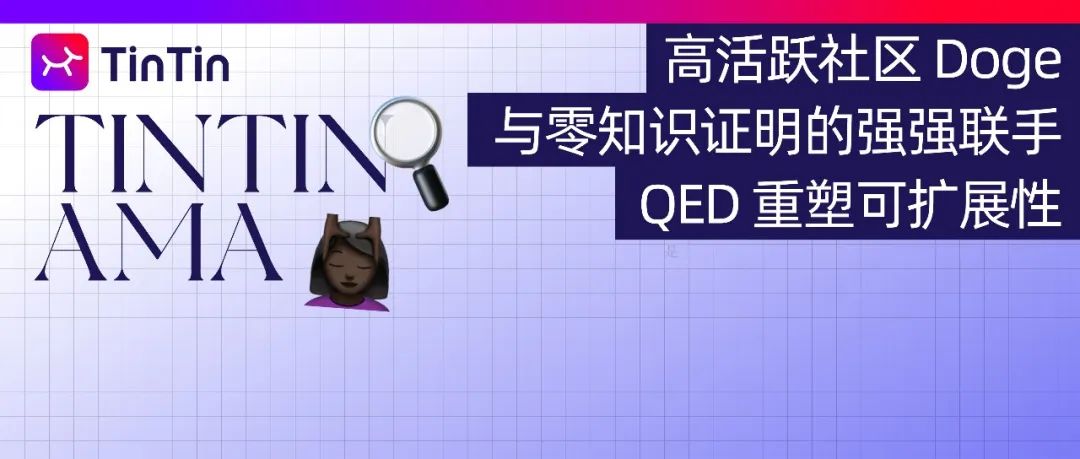
In the vast ecosystem of Web3, Doge is undoubtedly one of the most iconic and interesting projects. As a symbol originating from Internet culture, Doge has grown from an initial Internet joke to a decentralized asset that has attracted global attention today. Relying on its unique charm and broad user base, it has built a vibrant community.
As Doge is about to undergo a major system upgrade, QED Protocol proposes to introduce smart contract functions similar to Ethereum and Solana to Doge, and plans to improve transaction speed and network capacity through ZK Rollup technology. With this upgrade, Doge is expected to become the first PoW chain that combines the functionality of Ethereum with the scalability of Solana, laying the foundation for the development of decentralized exchanges (Dex), DeFi applications and NFTs.
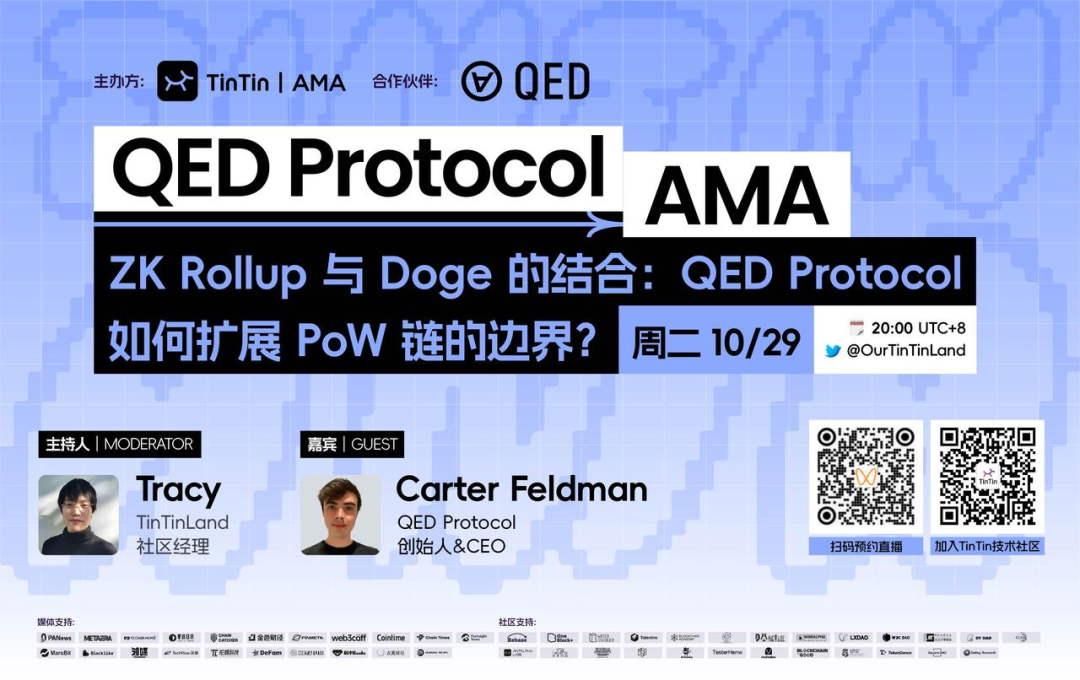
In order to discuss these exciting future developments, TinTinLand held an online AMA event with Carter, the founder and CEO of QED Protocol , at 8 pm on October 29. The event attracted a total of 14.2K online listeners, and provided an in-depth interpretation of QED Protocol and looked forward to the upcoming DogCon conference. The conference was hosted by QED Protocol, MyDoge and DogeOS , and strongly supported by Nexus Labs and TinTinLand . Next, let's review the wonderful interpretations in the conversation together!
🚢 How to register for DogeCon 2024:
https://lu.ma/j7i1np3o
⛽️ Event time:
November 13, 2024 | 1:00 pm - 6:00 pm
What is QED?
Many execution layers in the current market (such as Ethereum and Solana) have turned to the PoS consensus mechanism to improve scalability. However, the PoS model often finds it difficult to meet the security standards of the PoW chain. In this regard, Carter pointed out that the unique advantage of the QED Protocol is that it combines the security of BTC with the rich functions of smart contracts . By taking a new OPcode route and combining it with Dogecoin, the new OPcode op_checkgrouth16verify can achieve a user experience similar to ETH L2, becoming a more secure and versatile execution environment. Because of this, QED is called the "native execution layer" - it not only makes up for the functional deficiencies of Layer 1, but also brings unprecedented scalability to the BTC and Dogecoin ecosystems.
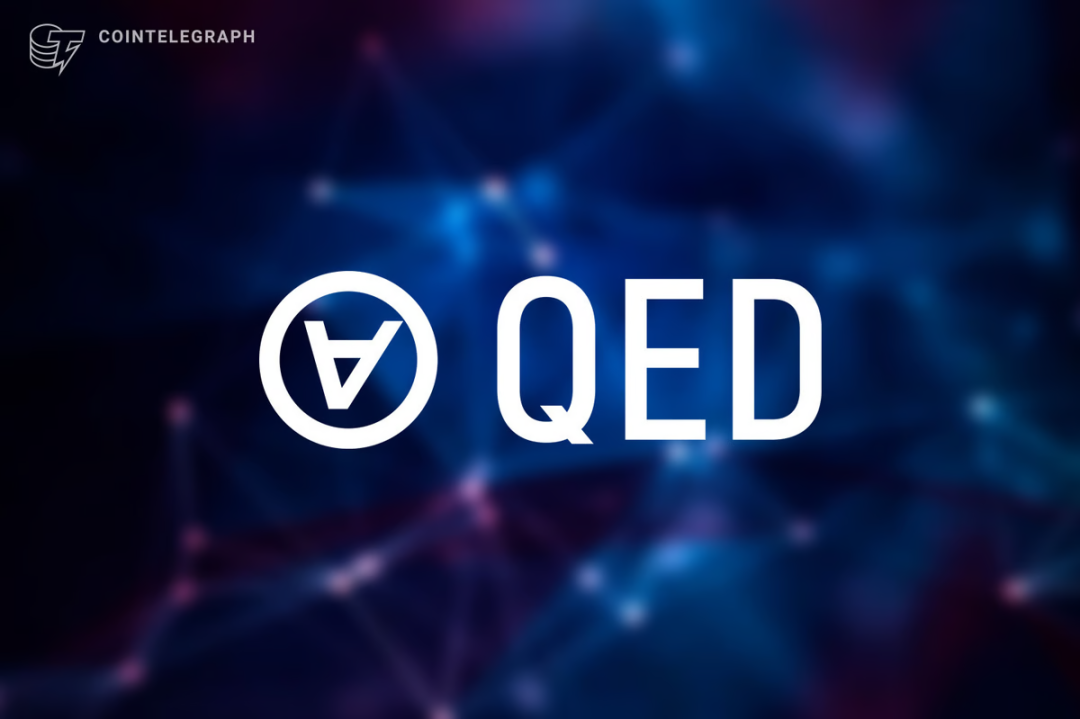
Although some people regard QED Protocol as a "second-layer network" for UTXO chains such as BTC and Dogecoin, Carter emphasized that the core mission of QED Protocol is to provide better execution layer expansion and security for Layer 1 , making it not just a simple Layer 2, but an innovative execution platform for UTXO chains and ecosystems such as Doge.
ZK Rollup technology leads new competition in smart contract platforms!
With the mission of providing a better solution for Layer 1, QED Protocol faces the challenge of how to improve and break through the competition. To this end, Carter pointed out that QED Protocol uses ZK Rollup technology to enhance Doge's transaction throughput and capacity. This technology effectively improves the efficiency of the network by generating zero-knowledge proofs (ZK-Proof) and significantly reduces the burden of on-chain data.
As an early Bitcoin layered network, Dogecoin has not yet implemented modern transaction features such as Taproot, and its existing scripts are strictly limited in size. To solve this problem, QED Protocol introduced a new opcode (OP_CHECKGROTH16VERIFY) specifically for verifying Groth16 zero-knowledge proofs , thereby expanding the network's verification capabilities.
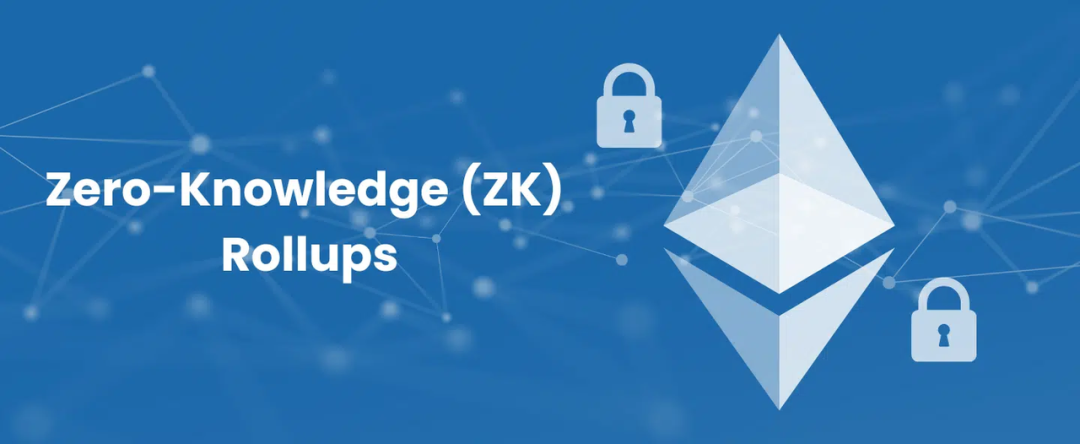
QED Protocol's zero-knowledge proof contains two public inputs: one is the root of the state tree , and the other is the signature hash value of the transaction. With these two inputs, the system is able to determine the specific details of the transaction, including the UTXO used and the corresponding output address. This mechanism ensures that all inputs are accurately recorded, thereby effectively verifying the legitimacy of the user's balance and withdrawal request when the user makes a transaction. In addition, QED Protocol is also able to generate a new state tree root to ensure that the script content of each block follows the constraint logic of the current block. This means that the verification logic of each block remains consistent, further improving the security and stability of the network.
With these improvements, QED Protocol not only enhances the performance of Doge, but also provides a solid foundation for it to compete with other smart contract platforms such as Ethereum or Solana. For users interested in learning more about ZK Rollup, Carter invites everyone to visit the official website of QED Protocol for more detailed documentation and information.
🎯 QED Protocol official website link:
https://qedprotocol.com/
🔗 CityRollup official link:
https://cityrollup.com/
The unique advantages of choosing Doge as a smart contract platform
In terms of platform selection, QED Protocol not only focuses on technical support, but also emphasizes the potential and adaptability of the platform. The reason why QED Protocol chose Doge as the basis for smart contract expansion is precisely because of its unique advantages and huge potential for ecological development. Carter said that Doge is known for its active community atmosphere in the blockchain industry , but it is relatively insufficient in terms of functions and currently lacks support for decentralized finance (DeFi) and smart contracts. If these functions can be expanded on Doge, it will help activate its huge user base and promote the further development of the ecosystem.
The Doge community is known for its optimism, innovation, and enthusiasm for new things. Its open and friendly atmosphere makes it an ideal choice for developers. Although the infrastructure is not yet complete, the community is highly receptive to new technologies, and many existing Doge users are accustomed to using decentralized applications (DApps). They have shown great interest in meme coin DeFi and other features, and QED Protocol meets this demand by enhancing Doge's functionality.

Technically, Doge's block generation time is only 1 minute, significantly faster than Bitcoin's 10 minutes. This feature greatly increases the transaction confirmation speed, allowing users to see transaction results faster and optimize the overall experience. Doge's average block confirmation time is 30 seconds, greatly reducing the time users have to wait for transaction confirmation.
Although Doge has a certain degree of security, compared with the huge computing power of Bitcoin, there are certain limitations in the security of some large transactions. However, Doge's fast block time makes it perform well in processing transactions, supporting NFT and DeFi, and brings a smoother experience to users.
Combining these advantages, Carter believes that Doge has great potential to become a feature-rich smart contract platform, which is expected to bring positive impetus to the development of the ecosystem.
Smart contract function is launched on Doge ecosystem
With the introduction of smart contract functions by QED Protocol, the future ecology of Doge is facing an important transformation. Many users who hold Doge, especially those who trade on exchanges, may seriously consider using the Doge chain for the first time. Most Doge holders usually only hold Doge on Robinhood or other exchanges without trading on the chain. Therefore, the introduction of smart contract functions will incentivize users to transfer Doge from exchanges to personal wallets, thereby further participating in on-chain activities.
At the same time, the new development platform will attract more developers to join the Doge community. Currently, Doge's core development team is limited, with only two to three developers doing core development, and the number of developers in the entire ecosystem is relatively small. However, the launch of smart contract functions will provide developers with greater creative space, enabling them to develop various applications on the Doge chain, thereby promoting the rapid growth of the number of developers.

In addition, the number of NFTs and other tokens on the Doge chain is also expected to increase significantly. Although the Doginals platform currently exists, the number of people using the platform is small, and transaction restrictions make it complicated to implement tokens such as Ordinals or BRC-20, and the user experience is poor. The introduction of smart contracts will help solve these problems and attract more projects to launch on the Doge chain.
This move not only brings support for decentralized finance (DeFi) and non-fungible tokens (NFT) to Doge, but also lays the foundation for the flourishing of other Web3 applications. With the expansion of functions, Doge is expected to attract more developers and users, promote the diversification and prosperity of its ecosystem, and thus occupy a place in the highly competitive blockchain market.
Break through technical bottlenecks and strive for double improvement
Despite its position in the market with its security and social attributes, Doge still faces challenges in scalability. Carter pointed out that by introducing zero-knowledge proof (ZK Rollup) technology, QED Protocol has successfully broken through this bottleneck. He emphasized that this technology enables Doge to significantly improve scalability while retaining its proof-of-work (PoW) characteristics. For example, assuming that a block can contain 1,000 transactions, the generated zero-knowledge proof only requires 384 bytes. This means that even when processing 1 million transactions, the generated zero-knowledge proof is only 500 bytes. This technology allows Doge's block size limit (usually 1 MB) to be bypassed, and millions or even tens of millions of transactions can be compressed into a relatively small zero-knowledge proof for verification.
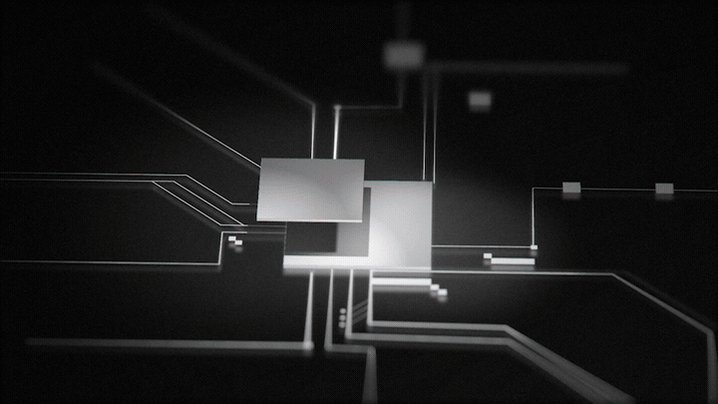
Carter further emphasized that the security of QED Protocol is fully guaranteed, using advanced encryption algorithms such as elliptic curve cryptography (ECC) , consistent with traditional security assumptions. He said that the uniqueness of this zero-knowledge proof means that regardless of the number of transactions, the size of the final proof generated and the verification time will not change, thereby greatly improving Doge's transaction processing capabilities , theoretically reaching tens of thousands of transactions per second (TPS).
With the continuous efforts of QED Protocol, fully parallel ZK Rollup processing capabilities have been achieved, which can accelerate block generation through more servers with almost no restrictions. Stress tests conducted through cloud services such as AWS show that Doge's TPS can reach 300,000 or 400,000, laying a solid foundation for future expansion.
QED Protocol's innovative ZK Rollup technology not only solves Doge's scalability problem, but also provides unlimited possibilities for the development of its future ecosystem. Carter expects that this change will promote the vigorous development of more decentralized finance (DeFi), non-fungible tokens (NFT) and other Web3 applications on the Doge chain.
Advantages and innovations of multiple features
At the same time, QED Protocol provides developers with a series of tools to help them develop decentralized applications (DApps) on Doge. QED Protocol will support Typescript and Rust, two smart contract programming languages. This is attractive to the current developer community because most developers are either familiar with JavaScript, or master Rust, or even both. In addition, QED Protocol also plans to add support for the Ethereum Virtual Machine (EVM) so that developers who want to migrate existing Ethereum applications to the Doge chain can easily do so.
Carter said that although EVM support will make the migration process smoother for Ethereum developers, the experience of developing with TypeScript and Rust may be superior. This choice can not only take advantage of the features of modern programming languages, but also provide developers with a more efficient development environment.
Compared with Ethereum or other platforms, these tools of QED Protocol have advantages in the following two aspects:
Multiple features: Developers can take advantage of Rust ’s high performance and security, JavaScript ’s flexibility, and TypeScript ’s type system to build more powerful and secure DApps.
Simplified process: QED Protocol's platform is designed to simplify the development process and reduce the challenges developers face when migrating and adapting to new environments.
These advantages make developing DApps on Doge more convenient and efficient.
Assist Doge platform transformation and expand DeFi ecosystem and payment functions
DeFi has made significant progress on blockchains such as Ethereum and Solana. QED Protocol helps the Doge platform attract and support more DeFi projects in a variety of ways, thereby changing Doge's traditional role as a payment tool.
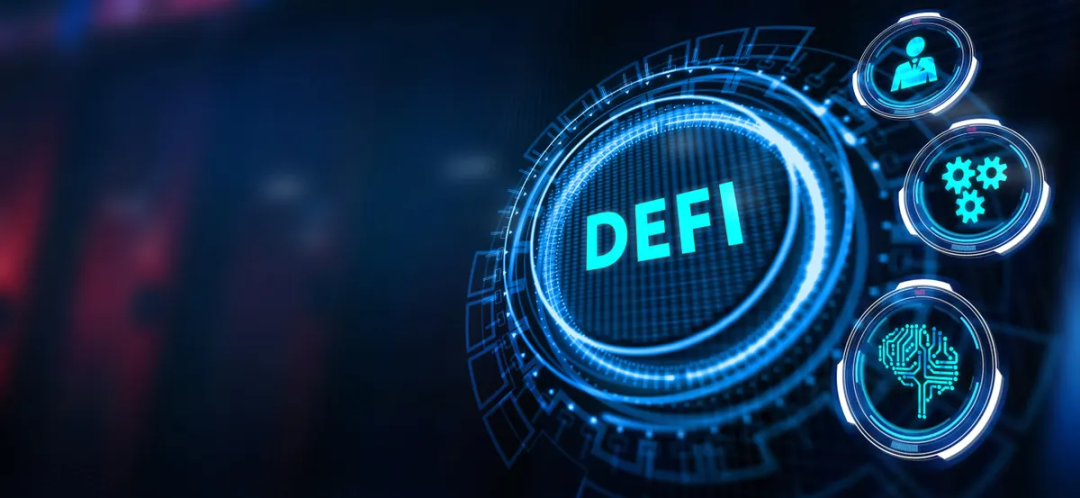
Carter pointed out that QED Protocol will help the Doge platform attract and support more DeFi projects in three key ways:
Activate liquidity: QED Protocol provides developers with a seamless channel to develop DeFi applications on Doge. Currently, Doge has more than $20 billion in liquidity, but has not yet effectively generated income. After the introduction of DeFi functions, users will be able to participate in liquidity mining and improve the efficiency of capital utilization.
Development tools and templates: QED Protocol provides a series of development tools and templates , such as decentralized exchange (DEX) templates and Meme templates, to help developers quickly build applications and collaborate with the community. This will promote the implementation of more DeFi projects and attract users to the Doge ecosystem.
Expanding ecological roles: The involvement of QED Protocol will provide users with more opportunities to use liquidity and enhance their participation in the DeFi ecosystem. This will not only promote the growth of the Doge ecosystem, but may also change its traditional role as a single payment tool and further expand its scope of application.
Overall, Carter emphasized that QED Protocol's efforts will inject new vitality into the Doge platform, allowing it to occupy a place in the highly competitive DeFi field. This innovation will pave the way for the future development of Doge and attract more users and developers to participate.
How QED promotes Doge's technological evolution and cross-chain interoperability
QED Protocol is optimistic about Doge's future technology roadmap, especially after the introduction of smart contracts and ZK Rollup. Carter pointed out that Doge's lack of computing power is a bottleneck in its development, but it also provides more possibilities for the future. With the introduction of smart contracts, Doge is able to achieve functions similar to platforms such as Ethereum and Solana, although these functions may have different manifestations.
Carter emphasized that Doge is characterized by its "meme" culture , which means that many Doge-based applications may revolve around this theme. With the addition of ZK Rollup technology, Doge can not only improve the scalability of transactions, but also attract more developers to build innovative DeFi and NFT projects on the platform.
In the future, QED Protocol will further enhance Doge's functionality, especially in cross-chain interoperability. Although it is not clear what specific applications developers will implement on Doge, Carter believes that as technology advances, Doge will gradually attract more users and projects. Especially with the trend of AI and meme culture merging, Doge has the potential to become a pioneer in this emerging field.
Overall, Carter is full of expectations for the future development of Doge. He believes that with the introduction of new technologies, Doge will be able to expand its scope of application and find its own unique position in the blockchain ecosystem.
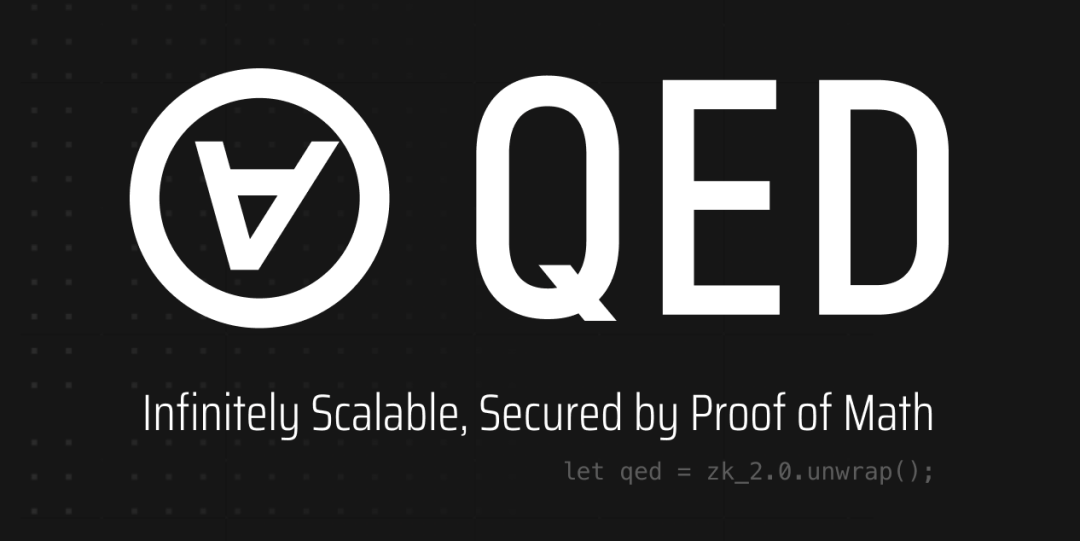
In the Q&A session, Carter elaborated on the reasons why QED Protocol chose zero-knowledge proof (ZK) technology. He pointed out that compared with fully homomorphic encryption (FHE) and multi-party computation (MPC ), ZK has the unique advantage of efficiently proving the amount of computation within a fixed size and time, avoiding the computational complexity brought about by the increase in transaction volume. ZK technology can ensure the security of each second-layer transaction and effectively prevent double payments, becoming an ideal solution for Doge's ecological expansion.
This event not only explored the core advantages of QED Protocol technology in depth, but also drew a new blueprint for the future development of Doge ecosystem. Carter explained how QED Protocol solves the dual problems of computational efficiency and security verification through ZK technology, demonstrated its potential in areas such as DeFi and smart contract support, and provided strong technical support and development opportunities for Doge's decentralized financial ecosystem.
As Dogcon 2024 approaches, the community is looking forward to the cooperation between QED Protocol and Doge. As a communication platform for technology and applications, Dogcon 2024 will bring together developers, community members and industry experts to further explore how to use ZK technology, cross-chain interoperability and new DeFi models to promote the evolution of the Doge ecosystem. This event will not only inject innovative vitality into the future cooperation between QED Protocol and Doge, but will also inspire more cutting-edge ideas in the industry and witness a new round of breakthroughs in the blockchain ecosystem.
The first DogeCon 2024 annual conference
DogeCon 2024 is not only the first large-scale event of the Doge community, but also a top industry summit where developers, founders, miners and crypto enthusiasts gather together. Here, everyone will discuss how to transform Doge's "stalk power" into more powerful practical applications. During the conference, you will have the opportunity to witness the release of a series of innovative products and services based on Doge, in the fields of DApp, DEX, NFT and payment solutions. As a network with a market value of approximately US$15 billion , Doge has attracted many enthusiasts around the world, including enthusiastic supporters of meme culture and Elon Musk's tweets. This event will bring unprecedented opportunities for technological innovation and ecological development.
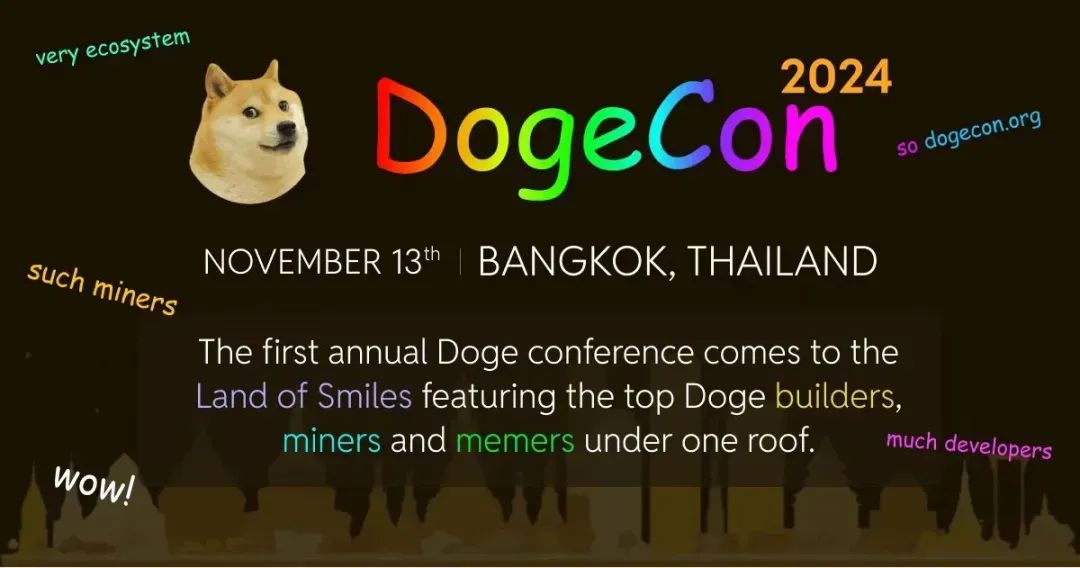
🏯 Activity theme:
The world's first DogeCon 2024 annual conference
🚧 Event time:
November 13, 2024 | 1:00 pm - 6:00 pm
🏕️ Event location:
The Capitol Room at FYI Center, Bangkok, Thailand (SEASIA)
⚓️ Registration method:
https://lu.ma/j7i1np3o
🪂 Official website link:
https://dogecon.org/
💬 TG Group Link:
https://t.me/+FFT0ic2-6zUwZWNl
A new technological breakthrough, Zero Knowledge (ZK Rollup) is coming soon!
Doge is about to usher in an important technical upgrade, and QED Protocol has proposed an exciting plan to introduce smart contract functions and support for decentralized applications to Doge. This upgrade will use zero-knowledge (ZK) Rollup technology to significantly improve the transaction speed and processing power of the network, enabling it to support efficient smart contract operations. This will make Doge the first PoW chain that can be compared with Ethereum in terms of functionality and has the scalability of Solana , laying the foundation for DeFi applications such as decentralized exchanges and staking, and promoting the innovative development of future memes and NFTs.
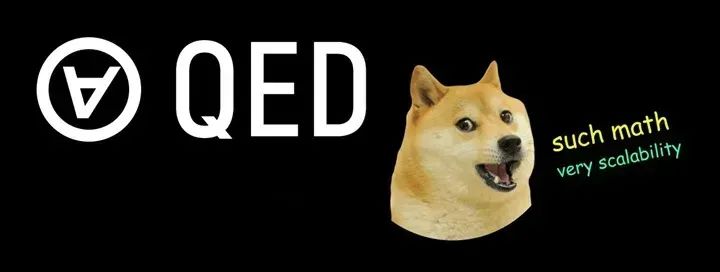
DogeCon 2024, the world's first Doge-themed event, is about to be held! This annual event will attract developers, entrepreneurs and enthusiasts from all over the world to gather together to explore how Doge technology can open up a new future. We look forward to witnessing Doge's glorious moments with you at DogeCon 2024 !
















